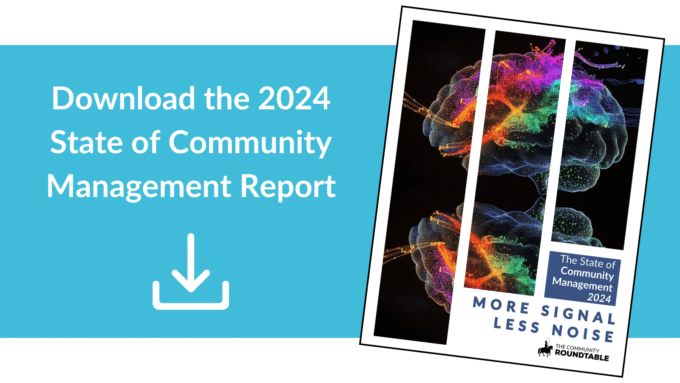Policies and Governance are crucial to ensuring stability and long-term success. The Community Maturity Model’s™ focus on this competency highlights that while engaging content and programs are essential, the underlying framework that governs community interactions is just as important.
Understanding Policies and Governance
Policies outline the “how” and “why” of community member interactions. They delineate acceptable behaviors, set terms of service, and ensure that operations remain within ethical and legal boundaries. Governance encompasses the community team’s structure and alignment with the organization’s mission, providing essential leadership and direction. Despite these being fundamental components of successful online communities, recent surveys reveal room for improvement for many programs.
The State of Community Management 2024 revealed that only 64% of community programs reported having robust policies and guidelines, down from 69% the previous year. This drop underscores the need for communities to prioritize these frameworks, especially for the 36% without them. It’s clear: establishing clear policies and governance should be at the forefront of community management strategies in 2025.
A Shift Toward Decentralized Governance
Interestingly, while many organizations typically implement a centralized structure for community governance, there is a noticeable shift toward a decentralized approach, especially in medium to large organizations. This allows various business units to take ownership of their community use cases while benefitting from centralized resources and best practices. The decentralized model promotes scaling community initiatives without compromising quality.
Implementing Approval Processes
An effective way to maintain a vibrant community ecosystem is to establish an approval process for new community initiatives. This ensures that every project is thoughtfully planned, prevents redundancy, and ultimately conserves resources. In 2024, data showed that a majority of community programs have adopted such processes, with nearly three-quarters of the best-in-class cohort doing the same.
The Value of Regular Audits
Conducting regular audits of your community program can be a game-changer. It involves reviewing the various competencies of the Community Maturity Model™ to measure progress and define future goals. Best-in-class communities recognize the importance of these evaluations, allowing them to refine their strategies continuously.
Key Recommendations for Success
- Embrace Decentralized Enablement: Equip different departments with the resources they need to manage community initiatives effectively. Consider using a Center of Excellence approach to share best practices across the organization.
- Develop a Formal Approval Process: Implement a structured approach for new community proposals to ensure alignment and resource efficiency.
- Establish Clear Policies and Guidelines: Create comprehensive policies that are easily accessible and understandable for all community members. Templates for standard policies and guidelines are available in resource centers like The Network – there is no need to reinvent the wheel.
Prioritizing policies and governance is essential for fostering healthy community interactions and sustainable growth. As we move into 2025, focus on setting clear frameworks that not only guide member behavior but also enhance the overall community experience. By doing so, you’ll position yourself for success in the dynamic world of community management.

